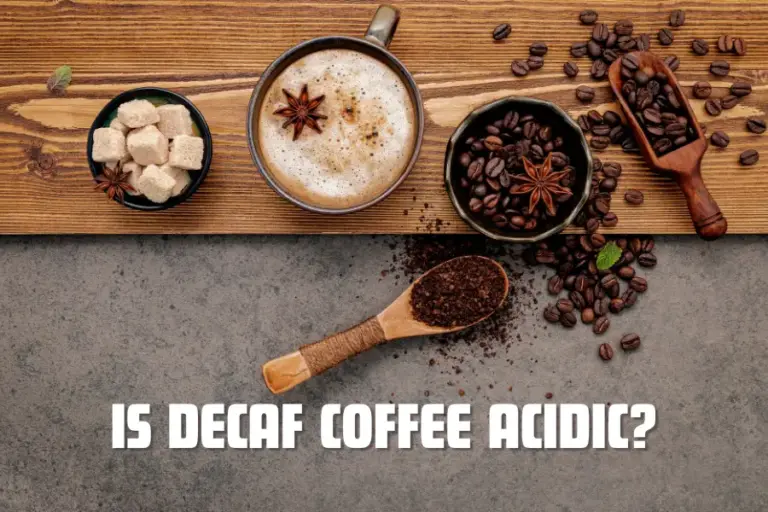How Much Caffeine in Matcha vs Coffee: Which More Energy?
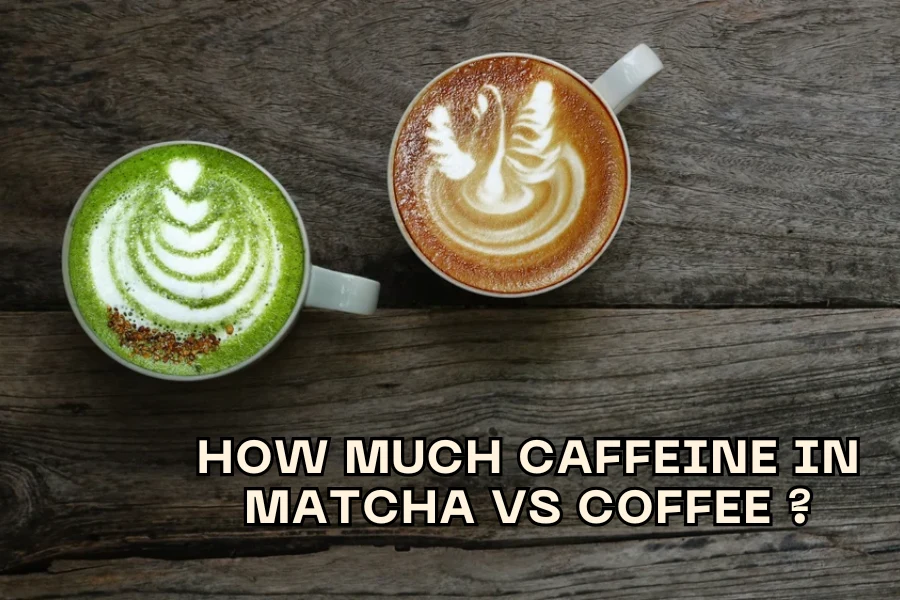
Surely you are no stranger to coffee – one of the most popular drinks in the world. If coffee is a long-standing drink, matcha is gradually becoming more popular. Matcha is a powder from young green tea leaves, originating in Japan and gradually becoming common in many other regions. Matcha can be processed into many different types of drinks and foods.
You may not know, but matcha also contains a certain amount of caffeine. Therefore, matcha is also another attractive option for those who need to supplement caffeine to stay awake. However, how much caffeine in matcha vs coffee? Which type will help you stay awake and have more energy? CoffeeEspresso will reveal it to you right away. Don’t leave if you don’t want to miss out on interesting facts about matcha and coffee!
How Much Caffeine in Matcha vs Coffee?
Here’s a fact you need to remember: matcha and coffee both contain caffeine. But matcha and coffee have different quantities of caffeine.
According to research, 1 gram of matcha can contain about 19 mg – 44 mg of caffeine depending on the type of tea leaves and the fineness of the grind. A cup of matcha will contain about 70 mg of caffeine (1 tsp matcha powder). While a cup of coffee (about 8 ounces) contains up to 96 mg – 200 mg of caffeine1. Therefore, it can be concluded that the amount of caffeine in matcha will be lower than that in coffee in the same serving.
Fascinating facts: Some people confuse matcha with green tea, but they are different. The tea leaves used to make matcha powder are harvested differently than regular green tea. In the last weeks before harvest, matcha-making tea plants are shaded. Matcha’s caffeine level is also impacted by this shading. Because of the shading process during the last weeks, matcha has a higher caffeine content than regular green tea.
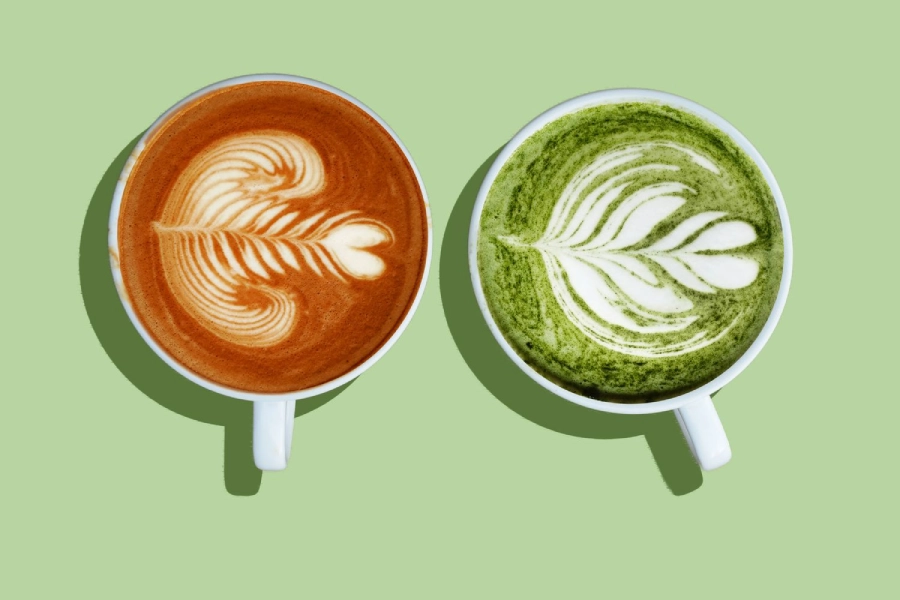
How Does Caffeine in Matcha vs Coffee Affect Your Body?
Matcha and coffee have different caffeine content, so the effects of caffeine in each type are also different. Although coffee has a higher caffeine content, the effects of caffeine in matcha last longer. To help you better understand how much caffeine in matcha vs coffee, we will discuss the effects of caffeine in each type.
Effects of Matcha Caffeine
If you have ever tried both matcha and coffee, you will easily realize that matcha brings a more “pleasant” feeling than coffee. This can be explained by the active ingredient L-theanine in matcha. The L-theanine content in matcha is very high thanks to the shading process before harvesting.
L-theanine is an active ingredient that can control the absorption of caffeine in the blood. Instead of absorbing caffeine immediately, you will gradually consume the caffeine in matcha thanks to L-theanine. The amino acid L-theanine also helps the body calm down, increase concentration and relaxation. That is why when drinking matcha, you will feel more relaxed and concentrate easier.
Effects of Coffee Caffeine
On the contrary, while matcha releases caffeine slowly into the blood thanks to L-theanine, coffee provides caffeine immediately to the body. You will feel energetic and alert immediately after drinking coffee. However, the effect of caffeine in coffee does not last as long as matcha. You can observe the image below to better understand the effects of caffeine in matcha vs coffee.
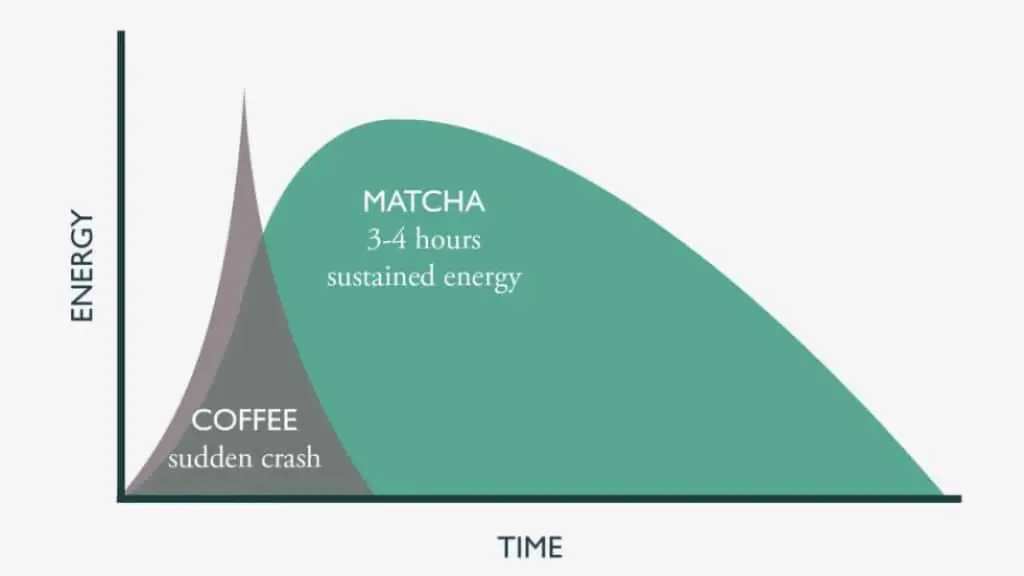
Matcha or Coffee: Which One Should You Choose?
Now that you have the answer to how much caffeine in matcha vs coffee, let’s look at a more interesting question. So which is better, matcha or coffee? We will find out the answer right away!
Caffeine Content
As we mentioned above, coffee has a higher caffeine content and the caffeine effects are faster than matcha. So if you need to wake up immediately or need more caffeine, coffee is your go-to. On the other hand, if you want to stay awake for a longer time and have a more gentle effect, matcha is the ideal choice. Matcha will keep you alert enough but not too jittery like coffee.
Health Benefits
Both coffee and matcha have great health benefits. Coffee is rich in antioxidants, good for the heart, reduces the risk of diabetes and some other neurological diseases. However, consuming too much caffeine can cause some side effects such as increased heart rate, restlessness, or excessive stress.
Matcha is also rich in antioxidants, including Epigallocatechin Gallate (EGCG). EGCG has good anti-inflammatory properties, boosts immunity, and effectively supports weight loss. In addition, L-theanine in matcha also has the effect of increasing concentration, promoting relaxation, and reducing stress2.
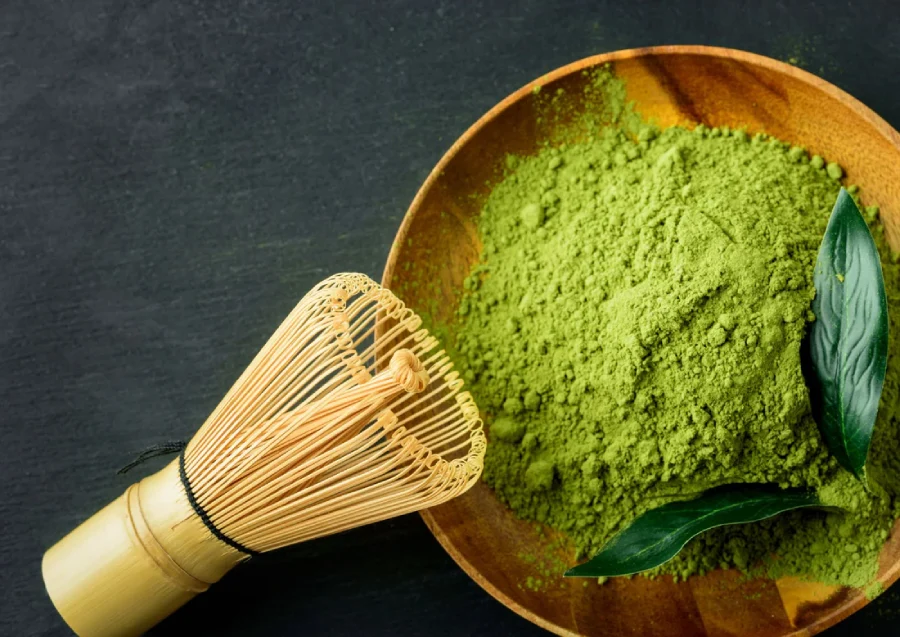
Flavor and Preparation
Matcha and coffee also have differences in flavor and preparation. Coffee will have a bitter taste, often with many different brewing methods such as espresso, latte, cappuccino, or cold brewed. Matcha has a sweet taste mixed with a little astringency and is often combined with milk.
If you are someone who likes strong and rich flavors, you can choose coffee. On the contrary, if you love a lighter and more delicate flavor, matcha is for you. Matcha or coffee which is more suitable will depend on your needs and preferences
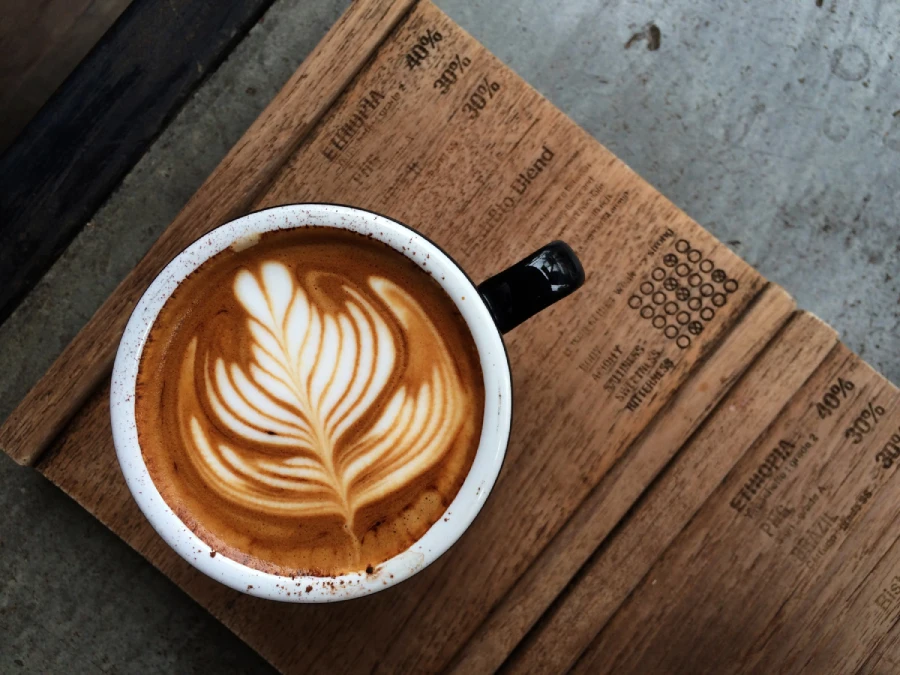
Final Thought
The caffeine content in a cup of matcha (1 tsp matcha powder) is about 70 mg. However, a typical 8-ounce cup of coffee might have anywhere from 96 to 200 milligrams of caffeine. The effects of caffeine in matcha and coffee on the body also is different. While caffeine in coffee will have an immediate and strong effect, caffeine in matcha will be gentle, slow, and longer.
Hopefully, our article has helped you know how much caffeine in matcha vs coffee. Depending on your preferences and needs, you can choose the right drink. Wish you an energetic day!
FAQs
Pros
– Provides long-lasting energy by releasing caffeine slowly into the bloodstream
– Rich in antioxidants, providing high anti-inflammatory properties
– Positive effects on cholesterol, blood pressure, and brain function
– Supports weight loss and boosts metabolism effectively
– Easy to prepare
Cons
– High price
– May not be suitable for some special groups such as pregnant women or people who cannot tolerate caffeine
You can consume 2-3 grams of matcha per day. The recommended serving size for each cup of matcha is around 1-2 grams.
According to the FDA, adults should consume less than 400 mg of caffeine per day. This means you can drink up to 5 cups of matcha per day. However, we recommend that you limit yourself to 3 cups of matcha to avoid the side effects of consuming too much caffeine. As for coffee, 2-3 cups is enough, depending on the caffeine concentration.
- F L Dodd. (2015, March 13). A double-blind, placebo-controlled study evaluating the effects of caffeine and L-theanine both alone and in combination on cerebral blood flow, cognition and mood. National Library of Medicine. https://pubmed.ncbi.nlm.nih.gov/25761837/ ↩︎
- Owen, G. (2008). Original Article – L-theanine, a natural constituent in tea, and its effect on mental state. Retrieved November 21, 2024, from https://apjcn.nhri.org.tw/server/apjcn/17%20Suppl%201/167.pdf ↩︎




